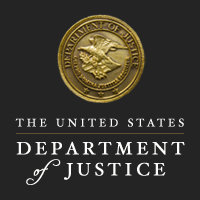 Antitrust crime is a catch-all for unacceptable business practices and since antitrust violations are broadly defined and the decision to prosecute is more of a policy decision than anything else, the crimes are defined more in the selection of who is arrested than what the actual criminal act is. For example, murder is the unlawful taking of a human life, which is a clearly defined act, whereas unfair trade practices are not as clearly defined or understood and are primarily guided by the U.S. Attorney’s policy statement.
Antitrust crime is a catch-all for unacceptable business practices and since antitrust violations are broadly defined and the decision to prosecute is more of a policy decision than anything else, the crimes are defined more in the selection of who is arrested than what the actual criminal act is. For example, murder is the unlawful taking of a human life, which is a clearly defined act, whereas unfair trade practices are not as clearly defined or understood and are primarily guided by the U.S. Attorney’s policy statement.
A policy statement is a statement issued by the top level of an organization outlining the organization’s course of action on a matter. Since antitrust violations are federal crimes, the U.S. Attorney’s office is the organization that decides whether or not to charge somebody with an antitrust crime and their Policy Statement on the matter can help shed some light on how they define antitrust violations and who they are after in terms of prosecution.
From their Policy Statement, you can tell that the U.S. Attorney’s primary focus is the enforcement of antitrust criminal statutes that directly affect consumers. The federal focus is not on business to business antitrust, but is focusing on protecting consumers. Their main priority in this regard is price fixing. In the words of the Attorney General in their Policy Statement, “…price-fixing violations in particular have a direct and immediate impact on the consumer in terms of the ultimate price that he/she must pay for goods and services. We must vigorously prosecute such collusive practices in our economy.”
The U.S. Attorney has said that the seven regional offices (Atlanta, Chicago, Cleveland, Dallas, New York, Philadelphia and San Francisco) cannot police the entire nation. Knowing that, enforcement is now handed off to all of the U.S. Attorneys’ divisions. There are 93 district offices of U.S. Attorneys throughout the United States.
Now, antitrust arrests can originate, by example, out a complaint filed with the U.S. Attorneys Office for the Southern District of Florida. What this means is that a broader net will be cast all over the U.S. in identifying price fixing schemes. It also means that each office of the U.S. Attorney throughout the United States will be expected to undertake federal prosecutions under the Sherman Anti-Trust Act particularizing price fixing of consumer products.
Major corporations are under less scrutiny for antitrust violations. In a practical business context, this means that if all the aluminum producers decide to fix the price of aluminum that the U.S. Attorney’s office will not focus enforcement on this agreement. But if your local supermarkets agree to fix the retail price of aluminum foil that we can expect some federal arrests.
Those who are cynics may well understand the policy of the government to be “pro business” in the sense that the major industries will be under lesser scrutiny of price fixing of primary commodities (think steel, petroleum, corn and soybeans), which can be a result of heavy lobbying on behalf major corporations in the U.S.
If all prosecutions are expressions of public policy and the selection of “targets” of enforcement is a policy decision of the political leaders of the U.S., then the politics of prosecution have small players in focus and major actors in the wings.
 South Florida Criminal Defense Lawyer Blog
South Florida Criminal Defense Lawyer Blog



